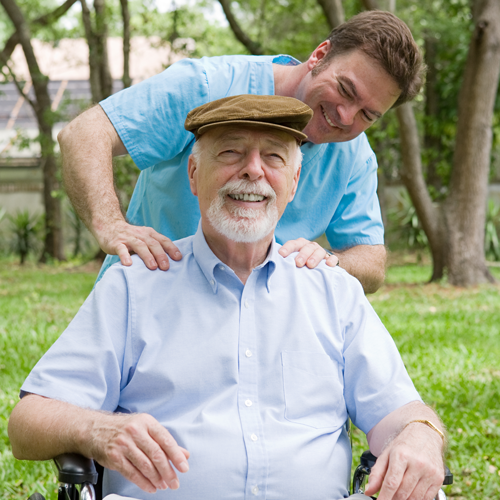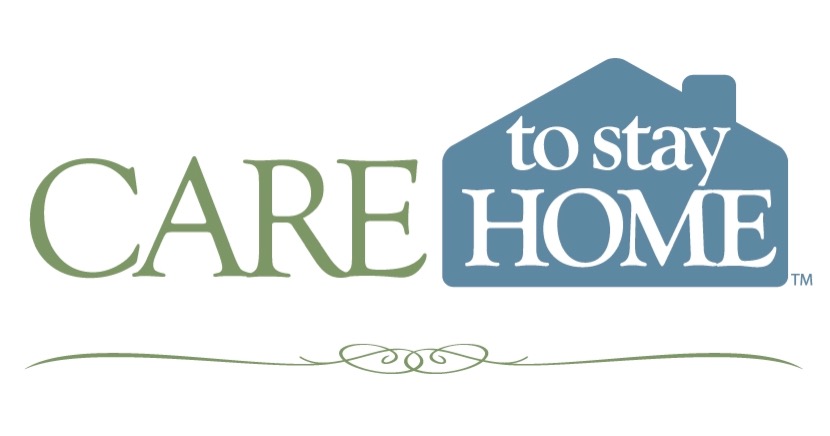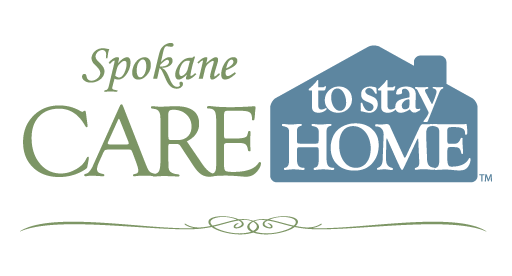
Our Care Managers can meet with you to discuss your specific care needs and perform consultations at home or in a hospital or facility setting. We are also able to coordinate that care with the medical professionals overseeing treatment, such as the doctor’s office, home health team, therapists and other medical teams as needed. We strive to coordinate our care with the medical professionals attending to your loved ones medical needs.
Talk with our Care Managers or schedule your free in-home assessment.
10 warning signs of Dementia or Alzheimer’s Disease
1. Memory Loss That Disrupts Daily Life
One of the most common signs of Alzheimer’s is memory loss, especially forgetting recently learned information. Others include forgetting important dates or events; asking for the same information over and over; increasingly needing to rely on memory aids (e.g., reminder notes or electronic devices) or family members for things they used to handle on their own.
What’s a typical age-related change? Sometimes forgetting names or appointments, but remembering them later.
2. Challenges in Planning or Solving Problems
Some people may experience changes in their ability to develop and follow a plan or work with numbers. They may have trouble following a familiar recipe or keeping track of monthly bills. They may have difficulty concentrating and take much longer to do things than they did before.
What’s a typical age-related change? Making occasional errors when balancing a checkbook.
3. Difficulty Completing Familiar Tasks at Home, at Work or at Leisure
People with Alzheimer’s often find it hard to complete daily tasks. Sometimes, people may have trouble driving to a familiar location, managing a budget at work or remembering the rules of a favorite game.
What’s a typical age-related change? Occasionally needing help to use the settings on a microwave or to record a television show
4. Confusion with Time or Place
People with Alzheimer’s can lose track of dates, seasons and the passage of time. They may have trouble understanding something if it is not happening immediately. Sometimes they may forget where they are or how they got there.
What’s a typical age-related change? Getting confused about the day of the week but figuring it out later.
5. Trouble Understanding Visual Images & Spatial Relationships
For some people, having vision problems is a sign of Alzheimer’s. They may have difficulty reading, judging distance and determining color or contrast, which may cause problems with driving.
What’s a typical age-related change? Vision changes related to cataracts.
6. New Problems with Words in Speaking or Writing
People with Alzheimer’s may have trouble following or joining a conversation. They may stop in the middle of a conversation and have no idea how to continue or they may repeat themselves. They may struggle with vocabulary, have problems finding the right word or call things by the wrong name (e.g., calling a “watch” a “hand-clock”).
What’s a typical age-related change?
Sometimes having trouble finding the right word.
7. Misplacing Things & Losing the Ability to Retrace Steps
A person with Alzheimer’s disease may put things in unusual places. They may lose things and be unable to go back over their steps to find them again. Sometimes, they may accuse others of stealing. This may occur more frequently over time.
What’s a typical age-related change? Misplacing things from time to time and retracing steps to find them.
8. Decreased or Poor Judgment
People with Alzheimer’s may experience changes in judgment or decision-making. For example, they may use poor judgment when dealing with money, giving large amounts to telemarketers. They may pay less attention to grooming or keeping themselves clean.
What’s a typical age-related change? Making a bad decision once in a while.
9. Withdrawal from Work or Social Activities
A person with Alzheimer’s may start to remove themselves from hobbies, social activities, work projects or sports. They may have trouble keeping up with a favorite sports team or remembering how to complete a favorite hobby. They may also avoid being social because of the changes they have experienced.
What’s a typical age-related change? Sometimes feeling weary of work, family and social obligations.
10. Changes in Mood & Personality
The mood and personalities of people with Alzheimer’s can change. They can become confused, suspicious, depressed, fearful or anxious. They may be easily upset at home, at work, with friends or in places where they are out of their comfort zone.
What’s a typical age-related change? Developing very specific ways of doing things and becoming irritable when a routine is disrupted.
Person-Centered Alzheimer’s & Dementia Home Care
Spokane Care To Stay Home provides compassionate care for clients with Alzheimer’s disease and other forms of dementia. We strive to improve the quality of life for our clients while providing vital respite care for family members. With 90% of seniors preferring to be in their own home, Spokane Care To Stay Home aims to provide top quality respite care to those with dementia and peace of mind to their loved ones.
In-home care services are delivered at home rather than in a hospital, nursing home, or other care facility. This allows people with dementia, including Alzheimer’s and other types of dementia, to remain in comfortable, familiar surroundings, and it often makes it easier for family caregivers to continue looking after their loved one.
Common types of in-home services include:
Personal care services – Our caregivers can provide help with the activities of daily living, including bathing, medication management, toileting, dressing, eating, and exercising. Some of these ADL's may require reminders, assistance or total care throughout the stages of dementia.
Light Housekeeping services – We provide light housekeeping to maintain safety, security, hygiene, and sanitation in order to provide the best care for loved ones. Our individualized housekeeping services can include light cleaning, meal preparation, and assistance with shopping and errands.
Companion services – Companionship services can aid an individual to feel independent, help them feel emotions that can bring back precious memories, and help them gain and maintain a higher quality of life. Companionship Services are vital to those living with dementia, including Alzheimer’s.
How Alzheimer’s Home Care Works
We start by thoroughly assessing your loved one’s physical, emotional, and cognitive status, working in coordination with their primary healthcare provider. Next, we create a personalized care plan to support your loved one.
People living with dementia typically need a higher level of specialized care. In addition to help with daily activities like bathing, eating, and toileting, our specially trained caregivers provide social and emotional support through:
- Positive reinforcement and encouragement
- Learning about the person’s life history
- Facilitating social connections with others
- Establishing a stable routine
- Engagement in meaningful activities
Why People with Dementia Require Special Care
If someone close to you has dementia, you’ve likely seen firsthand the daily life impacts on your loved one. Their memory loss may already be affecting their ability to do routine tasks, like paying bills and remembering to take medications. They may have trouble finding the right words or struggle to do things they once enjoyed.
What Is Dementia?
Dementia is a general term for memory loss and other cognitive issues that interfere with daily life. Dementia is not a disease itself but rather a grouping of diseases. There are about a dozen types of Dementia each of which may have subsets. Dementia describes a group of symptoms associated with a decline in memory, reasoning, problem-solving, language, or other thinking skills as it is associated with how it affects daily life. Memory loss or Cognitive Impairment by itself is not Dementia.
There are many types of dementia. This includes Alzheimer’s disease, Vascular dementia, Dementia with Lewy bodies, TBI (Traumatic Brain Injury) related dementia, Pakinsonion Dementia, and Alcohol related dementia, to mention a few.
Due to the progressive nature of Alzheimer’s and other forms of dementia, memory loss patterns can vary from one person to the next. Symptoms and life experiences in Dementia can vary from person to person, but they do have similarities within Dementia types.
Modern day experts have placed Dementia into 3 categories – Early Stage, Midle Stage and Late Stage. To Summarize, Early Stage individuals may require reminders for daily activities. Mid-Stage persons may require more coaching and Late Stage may require full care. Not all people with Dementia will experience every stage and the length of time in each stage will vary from person to person and by Dementia type.
Caregivers Need Support, Too
If you’re caring for a loved one with Alzheimer’s or another form of dementia, you may sometimes feel like you have no choice but to put your own needs aside. In-home care provides vital respite for primary caregivers. Even part-time hours of 20 hours per week can make a huge difference in the longevity of the family caregiver in the beginning.
When you have a little extra time to take care of your own needs—like running to the grocery store or getting a haircut—you’ll be better equipped to give your loved one the care and attention they need. Statistically, family caregivers that do take care of their own personal needs have a high incidence of physical as well as mental health issues that sometimes surpass that of the loved one they are caring for.
How an In-Home Caregiver Can Help
An in-home caregiver and the agency that provides that care can be a lifeline for families caring for a loved one with Alzheimer’ or other Dementia’s providing caregiver insights, expertease, emotional support, training, care planning, and respite care. In addition to providing the much-needed break for family members, here are some additional reasons to consider in-home care services:
Consistency and routine: People with memory problems tend to do better when they have a regular schedule. Caregivers can help make sure there’s a set daily routine, which can make the person with dementia feel less anxious and confused.
Emotional support: Caregivers are there to provide emotional comfort to the person with dementia. This can help your loved one feel less alone. Knowing they are getting companionship and support can be a huge relief.
Safety and supervision: Memory problems can lead to safety issues like wandering or forgetting to do things, like turn off the stove. Caregivers keep a watchful eye on your loved one to make sure they’re safe when you’re not there.
Medication Supervision: Caregivers can help a loved one with dementia take their medicines the right way. This can prevent health problems and make things less stressful for the family.
Support and education: Dementia can be very confusing and frustrating for family members, especially in the early stages. Caregivers can provide helpful information and guidance to family members on how to interact effectively with their loved one.
Communication: Caregivers are skilled at communicating with people who have memory problems. They make it easier to understand what the person with dementia needs and likes. This can help prevent misunderstandings in the family.
Ultimately, caregivers can help improve the quality of life for those with dementia by engaging them in meaningful activities and helping them maintain their dignity.
At Care To Stay Home, our agency professionals are certified trainers in Dementia, both locally and nationally, train each of their caregivers, and the instructor is a Certified Dementia Practitioner through the NCCDP. Special care plans are adopted for each client to meet their individual needs and a special caregiver is chosen to match up to those needs.
Contact our compassionate team to learn more about our Spokane elderly care services for people with Alzheimer’s and other forms of dementia.
If yu are a caregiver and believe you are loving, caring and among the best – please join us.
Dementia Care Tips for Spokane Families: Supporting Your Loved One at Home
Caring for a family member with dementia in Spokane presents unique challenges, but with the right strategies, you can create a safe, supportive, and engaging environment at home. Maintaining familiar routines and surroundings is crucial for someone experiencing memory loss. Here are practical tips focusing on memory support, structured routines, and effective communication to empower your family and enhance your loved one's quality of life.


